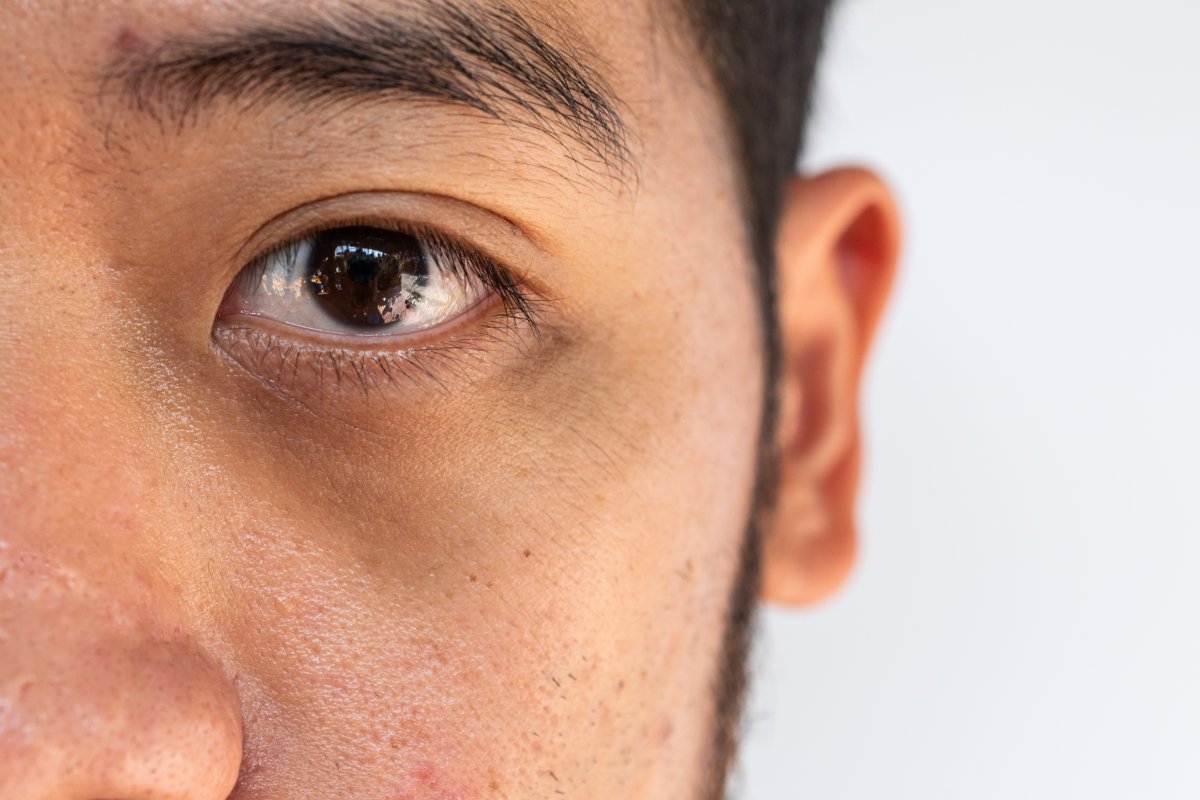Dark circles below the eyes are a relatively common issue that are often associated with tiredness, but there are several other causes that many people may not be aware of.
Typically, these dark circles are nothing to worry about, although in some cases, they may be a sign of an underlying issue.

What Causes Dark Circles Under the Eyes?
One of the main causes of dark patches below the eyes is a lack of sleep, Dr. Fatima Fahs, dermatologist in Michigan and founder of Dermy Doc Box, told Newsweek.
"There's a reason why they call it 'beauty sleep'—lack of sleep can make the under-eye area look dark," she said.
"This happens because the blood vessels under our eyes dilate from lack of sleep, and the thin skin can make this change pretty obvious.
"The added effect of retained fluid in the area as well can cause additionally puffiness, giving your eyes the appearance of being darker with more prominent bags."
A lack of sleep is not the only cause, though. Certain diets, such as those with a high salt intake, can increase fluid retention and cause puffiness below the eyes.
Tobacco use and smoking are also "horrible" for the skin in a number of ways and can contribute to the problem, Fahs said.
"Especially because it decreases the elasticity of the skin and can cause the skin under the eyes to prematurely thin and age as well as appear dehydrated," she said.
Seasonal allergies are another common culprit, particularly if your dark eyes appear to get worse in the springtime.
"Sinus congestion leads to even more congestion of the veins under the eyes and this causes the area to bulge and become puffy," Fahs said.
Some medical conditions can also result in dark circles under the eyes, including thyroid issues and iron deficiency, or anemia.
"Thyroid disease can cause under eye bags as well as certain medications due to fluid retention," Fahs said. "Anemia can cause dark under eyes as the body is unable to fully oxygenate tissues and therefore the skin appears darker."
"Dark circles themselves are not necessarily dangerous, however they can be a sign of more dangerous health conditions like anemia or low iron."
Finally, some people are simply genetically disposed to developing dark circles, while aging is among the leading causes.
As you get older, the skin below the eyes becomes looser and thinner, and the blood vessels underneath the skin become more visible, leading to a darker appearance.
How to Get Rid of Dark Circles
According to Fahs, the first step in successfully treating dark circles is to try to identify possible contributing factors.
"Are you sleeping enough? Has your diet changed or is salt consumption high? Are you smoking or drinking lots of alcohol? Have you seen your primary doctor recently for a physical and routine blood work? Do you have a history of seasonal allergies? Are your eyes itchy or watery frequently?" she said.
"After addressing environmental factors, then you can also consider searching for an eye cream to address your specific concern."

According to Fahs, products containing retinol and peptides can be useful, since these compounds can increase collagen production, helping to improve firmness, texture and fine lines.
Fahs also recommends products containing hyaluronic acid, which is a humectant that draws in moisture and helps plump up the skin in the area.
Products with vitamin C, an antioxidant that fights free radical damage, are another option as the substance can help improve hyperpigmentation.
"There are also in-office, non-surgical procedures to consider discussing with your dermatologist like dermal fillers, platelet-rich plasma injections, resurfacing lasers or radiofrequency with microneedling treatments," Fahs said.
Eye creams containing caffeine may also be helpful as it constricts blood vessels in the area below the eyes, improving blue or purple discolouration and puffiness.
Correction 10/05/22, 5:54 a.m. ET: This article was corrected to make clear that consuming caffeine will not change the appearance under the eyes.
Uncommon Knowledge
Newsweek is committed to challenging conventional wisdom and finding connections in the search for common ground.
Newsweek is committed to challenging conventional wisdom and finding connections in the search for common ground.
About the writer
Aristos is a Newsweek science reporter with the London, U.K., bureau. He reports on science and health topics, including; animal, ... Read more





